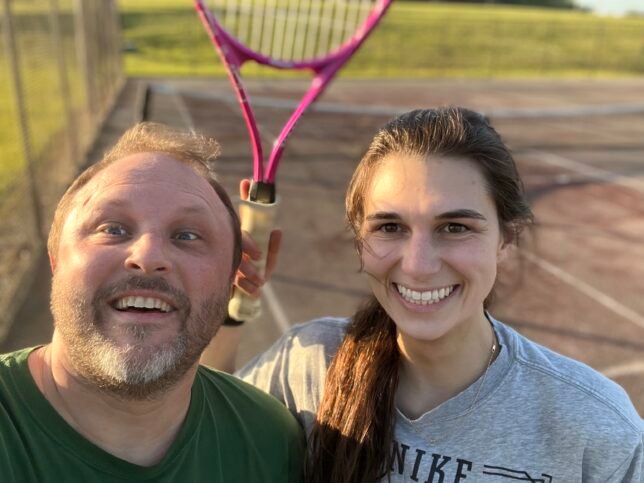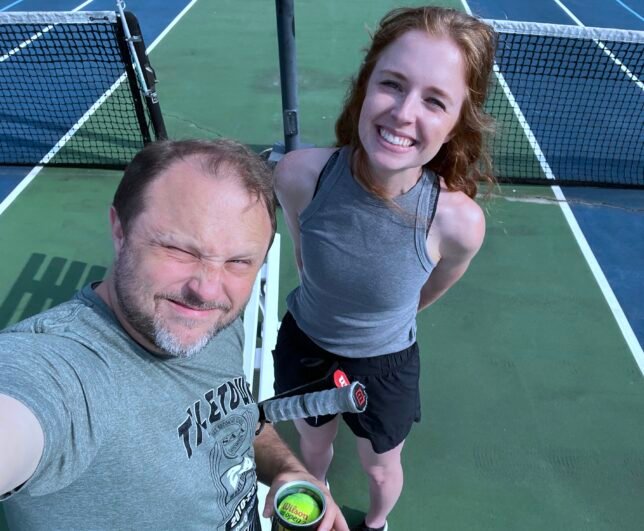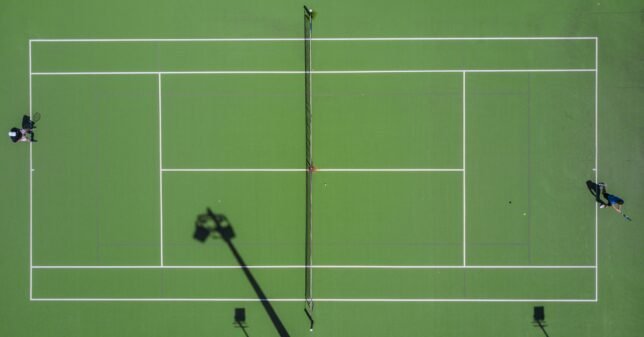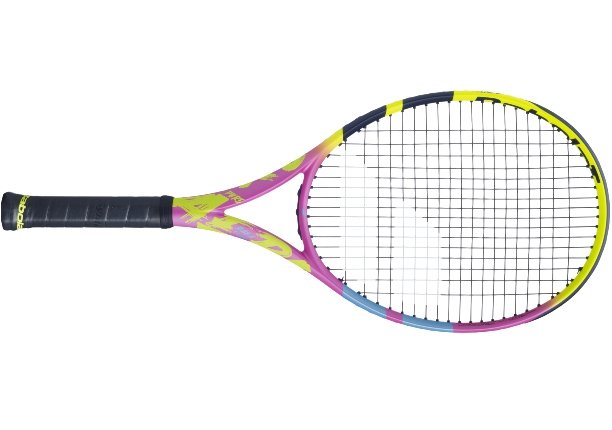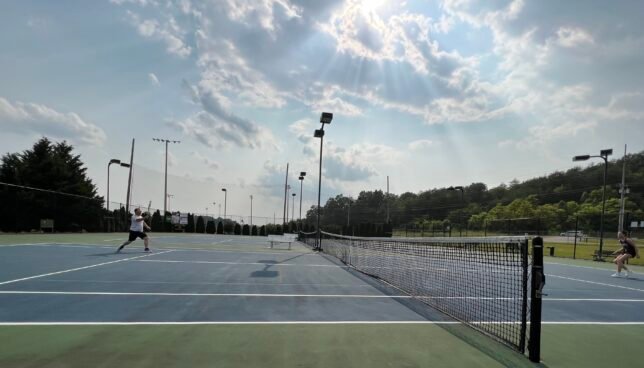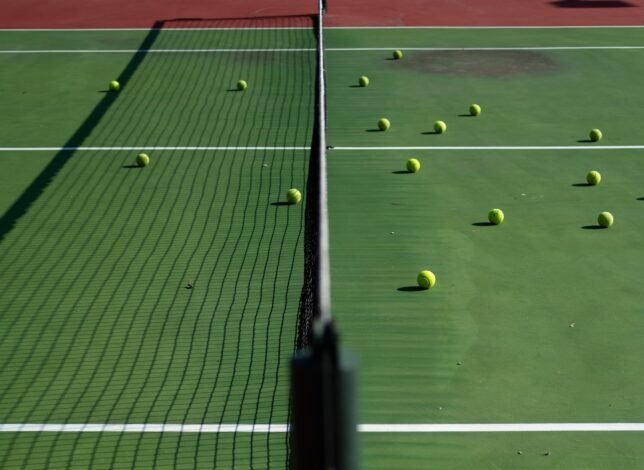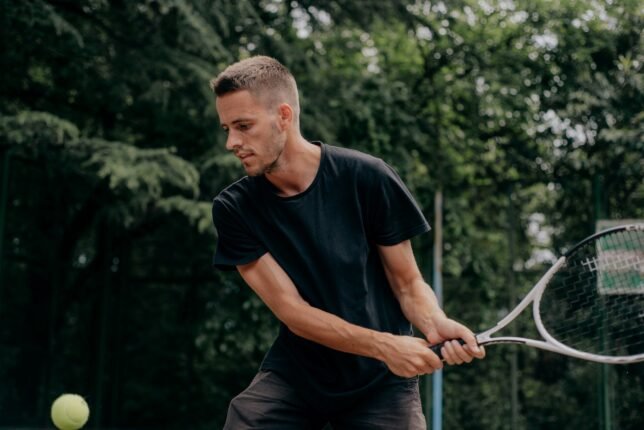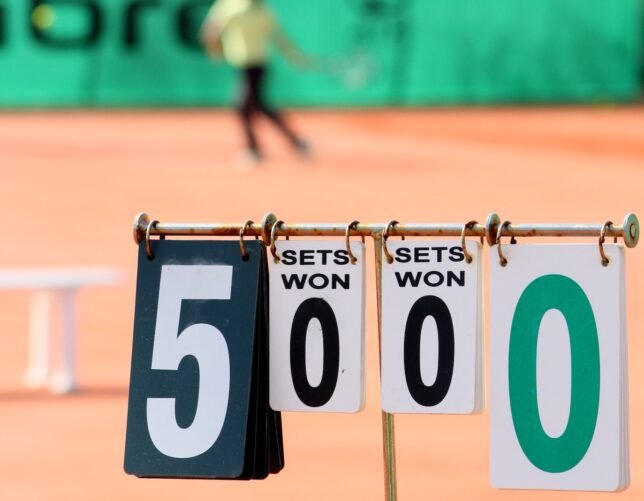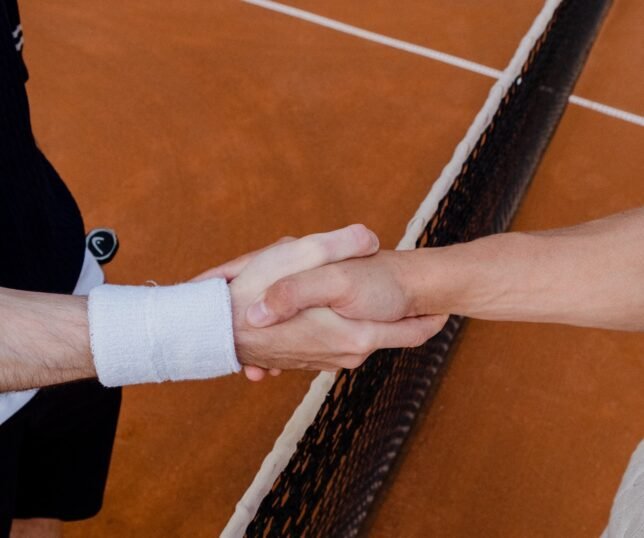I previously wrote here about lessons learned about medicine from riding a motorcycle but, it turns out, not every doctor rides a motorcycle. I’m pretty positive they don’t all play tennis either, but here are a dozen lessons learned about medicine from playing tennis.
It’s more fun if you have a partner who is uplifting and who makes you better.
If you’re an amateur tennis player like me (in other words, if you’re not very good like me), playing with someone who just wants to crush you every time isn’t much fun. No one enjoys being humiliated by a jerk, even if they are good at what they do. Worse, little education or improvement happens through humiliation despite the way some attending physicians treat their residents. On the other hand, even if your tennis partner wins every time you play, it can still be a lot of fun and they can make you better by meeting you where you are and teaching you a few things along the way with the spirit of humility, kindness, and patience.
The same thing is true in medicine. No one appreciates consulting physicians who are jerks or a partner whose arrogance gets in the way, even if they are very good at what they do. I’ll let you in on a little secret though: most physicians who act that way are not very good at what they do at all. That’s why they act that way. If you are a resident or a medical student, the same goes for attending physicians. Your teachers should meet you where you are, assessing your knowledge and skills, and helping you build on those in a supportive manner with humility. The ones who don’t are probably not very good at their jobs.
You don’t have to be the best at everything to play.
There are lots of different elements that combine to make a great tennis player. There are certainly physical attributes that the greatest tennis players have that I do not, but there are also different skills of the game as well: the serve, the forehand and backhand groundstrokes, the forehand and backhand volley, the smash, and lots of other things to practice. You don’t have to be good at all of them to still have a good time and play well enough to not be embarrassed. You need all of them to be a great player, but just being good at 3 or 4 things can make you competitive enough to have some fun and get some exercise.
In medicine or surgery, the same things apply. You don’t have to be the best at every single thing, but realizing your weaknesses and making up for them with other strengths can make you competent and good at what you do. Do you have a poor memory? Learn to look things up frequently. Not as fast as someone else? Take your time and do as much as you’re able to do. The important thing is to know what you are good at and what you are not good at and change your game up to emphasize your strong points.
Rules and (guide)lines are important.
In tennis, rules are everything. Make sure you know them well and play accordingly. What’s more, the lines on the tennis court determine who wins and who loses. Whether it’s your shoe touching the line when you serve or the ball just missing the line on your return, those lines are very important (albeit sometimes frustrating).
In medicine, rules and guidelines keep our patients safe and protect them from harm. Not following guidelines and well-established rules is completely unacceptable, though it is commonplace. Maybe worse is not knowing the guidelines and rules in the first place. That is definitely the bigger sin. Patients put their trust in you to protect them from harm by applying well researched rules and guidelines to their care. In tennis and in medicine, you’re not allowed to make the rules up as you go or draw the lines where you want them to be.
Having the most expensive and latest equipment is no substitute for fundamental skills.
Every time I hit a bad ball or it doesn’t go where I meant for it to go, my instinct is to blame my old racket or the stale ball or something else that is external to myself. Fresh balls do make a difference and some rackets are definitely better than others, but neither of those elements are the reason why my level of play isn’t great. The truth is, I’m just not a great player and it’s not the fault of my $29 tennis racket. Wasting $300 on a Babolat Pure Aero Rafa 2023 with a graphite frame and a FSI spin woofer system isn’t likely to improve my game very much at all (ok, sure, it is a very cool racket). I just need to practice basic skills until I’m better at them.
The same is true for medicine and surgery. Using a barbed suture is no substitute for learning how to tie knots. There are dozens of examples of fancy pieces of equipment or tools or robots or other tech out there that promise to give your patients less pain or fewer infections or less bleeding or whatever. But most of the people who use those pieces of equipment are not good at the very basics like knot tying or efficient surgery or hand-eye coordination or just anatomy for that matter. Focus on the basics. Master them. Only a few players in the world truly benefit from expensive toys but that doesn’t stop companies from trying to sell stuff to you constantly with exaggerated benefits and magnificent claims.
Take care of your partner and they will take care of you.
If you’re lucky enough to have someone you play tennis with regularly, you should value that person and that friendship. Make sure they’re taking care of themselves and that they’re hydrated and that they’re doing well and they’ll return the favor. You want to play tennis with people like that.
The same is true for your partners in medicine, whether they are physicians or nurses or scrub techs or other team members. Medicine is a team sport and a collaborative effort. Make sure everyone who’s a part of the team is taken care of and they will return the favor to you. The person who benefits the most from this symbiosis is your patient.
Perseverance and (good) practice makes up for a lack of natural talent. Hard work is everything.
Rafael Nadal at 6’1. Roger Federer is 6’1. Novak Djokovic is 6’2. Let’s just say they are all a few inches taller than me and despite that, they all weigh less than I do. I don’t have what you might call a ‘tennis body.’ In fact, I have no natural talents when it comes to the game of tennis. But I can persevere and practice and work on skills and I can still play the game and enjoy it. I’ll never win any tournaments, but that’s not really the point.
In medicine or surgery, some people are just naturals and things come to them rather easily. You may not be that way. But I promise you that with perseverance and practice you can be better and you can be a competent physician. Your practice needs to be guided by best principles and needs to deliberately focus on your weaknesses. This is called deliberate practice and it works. Hard work is everything. Don’t get lackadaisical.
Roger Bannister was the first man to run a mile in under 4 minutes. He was also a medical resident at the time he did it. He later became a neurologist. He was a naturally gifted runner, but until he applied himself with deliberate practice, he was not a competitive runner. It took deliberate practice for him to break four minutes. His biggest impediment was not having that much time during medical school and residency to commit himself to practice and this likely kept him from Olympic greatness. He recognized that his time was precious and chose medicine over running. One of my favorite quotes of his is this:
I’d rather be remembered for my work in neurology than my running. If you offered me the chance to make a great breakthrough in the study of the autonomic nerve system, I’d take that over the four minute mile right away. I worked in medicine for sixty years. I ran for about eight.
Remember your calling and prioritize appropriately. None of us can be great at everything.
Always push yourself to be better.
It’s easy to be complacent. Bannister knew he had potential if he applied himself. He chose greatness over mediocrity and embraced hard work and sacrifice along the way. He did this both in running and in medicine. Serena Williams, with her natural talents, could have done almost no work and been one of the top 10 female tennis players of all time but she pushed herself to be better and she too embraced hard work and rejected mediocrity.
In medicine, we all reach a comfort level where we can go to work and feel capable of handling whatever comes at us. When we become comfortable, we stop learning and improving. Expect more of yourself. You are your only competition. Consciously work at being better at every aspect of your game and you’ll amaze yourself with the results. By the way, this also requires being honest about where you need improvement. Push yourself out of your comfort zone.
Sometimes the ball doesn’t bounce your way. Life isn’t always fair.
When the ball hits the top of the net, it could easily fall forward on your opponent’s court or backwards onto your own. The difference could be the whole match. How it falls is basically due to chance. It’s largely beyond your control. The only thing you can control is how you react afterwards. Do you throw your racket on the court and stomp around cursing The Fates or do you compose yourself and realize that the loss was beyond your control and work harder next time to not have games that depend upon such luck? Control what you can control and don’t complain or worry about the rest. Bad breaks happen to everyone.
A lot of negative outcomes in medicine are no one’s fault. The human body and our medical care are both imperfect. Control what you can control and make improvements where you can but don’t wallow in self-pity over bad luck.
Always be honest about faults and give others the benefit of the doubt. Ethics and integrity are more important than winning.
When there’s no referee at the match, disagreements about a ball being in or out are frequent among players. Optical illusions, vision problems, and poor vantage points conspire to generate honest disagreements. That’s okay. Give the other person the benefit of the doubt and just replay the point. It’s not a big deal. But if we’re being honest, some players stretch the truth when it’s opportune to them about where the ball might have landed. When they do, they’ve made a critical and fatal decision: they’ve chosen winning over the truth. They have no integrity. They have no ethics. Always be honest about your faults; integrity is more important than winning.
The same is true in medicine. If you are tempted to stretch the truth a bit because you think it will be an advantage to you or even to your patient, don’t. The ends never justify the means. You will find yourself down a dark pathway from which there are scarce few who return. The eventual slippery slope of corroded ethics will destroy you.
The mental game is just as important as the physical game. You’re nothing without the right attitude.
The field of sports psychology is well established. Your mindset determines everything. If you don’t shrug off mistakes and look past failures, you will soon find that you are your own biggest opponent. Plenty of star athletes in all sports have failed time and again due to their psychology – not their physical abilities. Novak Djokovic is the tennis player who speaks most openly about this idea and his personal struggles. He says,
Tennis is a mental game. Everyone is fit, everyone hits great forehands and backhands.
Well not everyone does; not sure he’s seen me play. Still, the difference between winning and losing when all other things are equal is confidence and how we react to adversity and rebound from failure.
In medicine, attitude is everything. Your attitude directs how you work and how you treat people and what your priorities are and the lens through which you view problems. Churchill said, “Success is not final, failure is not fatal: It’s the courage to continue that counts.” Work every day like it’s your first day and like it’s your last day. Be humble and confident at the same time.
There are good days and bad days. The most important part is showing up again the next day with things to improve on.
An extension of the last point is that you must always move forward despite your victories and successes or your losses and failures. Even when players are equally matched in a game, it tends to be the case that players who are behind in the score play poorly and players who are ahead play better. That’s the head game part of tennis. You need to learn to play every point like you’re winning or at least have the confidence that you can win no matter what situation arises. But far too many players dwell on their last loss and play poorly as a consequence. Even worse, many players gain too much confidence from their last victory and stop working hard and improving.
Come to work every day hungry. Find ways to be better.
Matches only have a winner and loser if you’re doing it wrong.
Yes, I’m a competitive person and, yes, I like to win, but, as Djokovic has said, at the end of the match, remember the other player is human and just tell them, “Great fight.” I’m never going to make money playing tennis. Trust me. But I can have fun playing and I can exercise and I can spend time with my friends and family. I definitely lose more than I win, but luckily my opponents recognize at the end of the match that I’m still just a human.
Medicine is not a competition. It’s about getting patients where they need to be and providing them with what they need to live as well as they can or at least to die with dignity. There’s no space in the field of medicine for hubris or arrogance or competitiveness. Approach your patients and your life with humility and do whatever is necessary to take care of the patient, even if that means swallowing your own pride and admitting your limitations.

